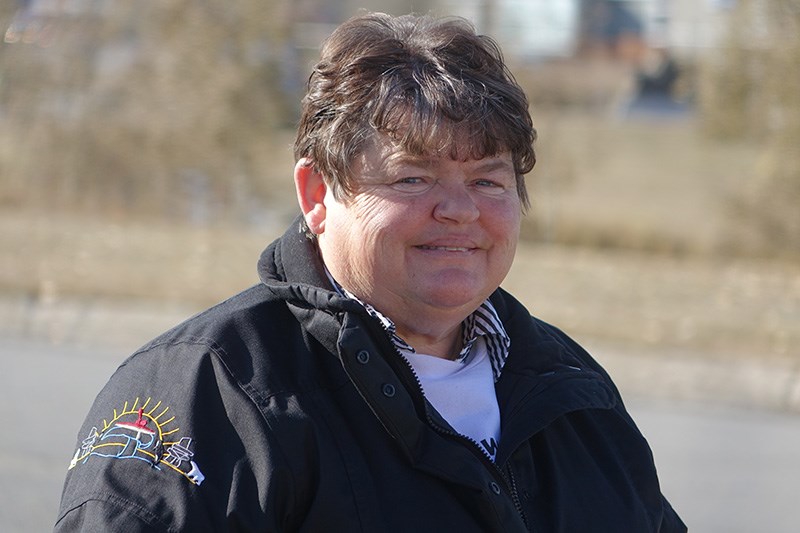A handful of people who were homeless in Thompson a few weeks ago have moved on to find more permanent housing after briefly staying in the YWCA, Mayor Colleen Smook said in an online video address to the city recorded and posted May 1.
Twenty-five homeless people with elevated risk from the novel coronavirus due to age, medical conditions and more were provided with dormitory rooms at the Y a couple of weeks ago in an effort to make physical distancing possible in an effort to help prevent the spread of COVID-19
“We’ve had two that have just left and those spots were filled but we’ve also had three that have gone back to their home communities already and we’ve got a few more that went to different families and that in Thompson to stay with so we’ve been able to bring more people in as those beds and places arise,” Smook said.
Community safety officers have been spending two days a week at the YWCA to help get to know the people better while the Addictions Foundation of Manitoba has also been providing counselling and support.
At the time the original 25 people were put up in the Y, there were 52 people staying at the Thompson Homeless Shelter. Together, those groups represent about two-thirds of Thompson’s homeless population.
“We have about another 40 people that are out on the street,” Smook said.
That is about the same amount there was in 2018, when a homelessness point-in-time survey counted 132 people - 112 adults and 18 children, more than 90 per cent of them Indigenous.
Most of the homeless people in Thompson originally come from other Northern Manitoba communities, including Granville Lake, Brochet, Lac Brochet, Leaf Rapids, Nelson House, Oxford House, Pukatawagan, South Indian Lake, Split Lake, Tadoule Lake, The Pas and York Factory, Smook said, while some have always lived in Thompson and at least one is originally from Saskatchewan. There is even one from outside the country.
“We have one person on the streets periodically from Wisconsin,” said the mayor.
Some of the newer people on the streets right now are there because they came from outlying communities to go grocery shopping but were not allowed back on buses to return home.
“They don’t always get back home,” Smook said. “If they are deemed to be drinking or have done drugs or that they’re not allowed back on the buses so we’re going to be working with the communities to see how we can enable the communities to maybe post somebody near the liquor store if they don’t want them drinking there.”
The temporary housing at the YWCA is being funded by the federal government’s Reaching Home homelessness strategy, which announced last May that Thompson wold be receiving $1.74 million over five years to support initiatives such as the Thompson Homeless Shelter. The city is also receiving an additional $200,000 in funding this year to support additional measures to try to ensure homeless people’s safety during the COVID-19 pandemic.
The city investigated a Polaris building at the old University College of the North campus as a possible temporary housing facility but it would require more extensive repairs than hoped to be suitable.
The city, the homeless shelter and the community advisory board on homelessness are looking at other options for safe housing during the coronavirus pandemic. MKO and Keewatin Tribal Council have also applied for additional COVID-19 specific funding to support projects for vulnerable people in Northern Manitoba.




